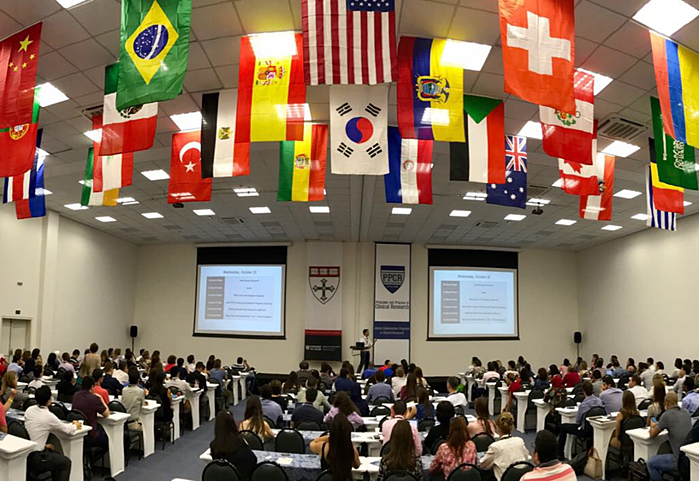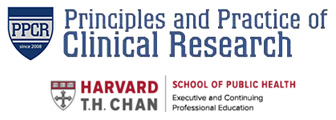This program covers the basics of clinical research (how to formulate a research question, select study population, randomization and blinding methods) to statistical methods (data distribution and classification, statistical tests, sample size calculation, survival analysis, missing data and meta-analysis); data collection, monitoring and reporting (include training in manuscript writing); and study designs (observational studies, non-inferior and adaptive designs and randomized clinical trials).
PPCR Program old
There are two phases to essay writing. The first is known as the initial draft. essays online The initial draft is an initial draft is based on notes to draft. After the initial draft is done, you can move to your next sentence outline.

WHAT TO EXPECT
Our collaborative distance-learning training program in clinical research is offered to participants from Boston and throughout the world. It is designed for individuals who wish to gain basic and advanced training in clinical trials before moving into the field and for those who have experience in this area and aim to broaden their role in the design, management, analysis, and reporting of clinical trials.
Learning Objectives: At the end of the program, participants will be able to design clinical trials in an effective manner, collect data appropriately, use the basic functions of a statistical software package, choose appropriate basic statistical tests, run statistical analysis, critically read and understand a research paper, develop clinical research based on integrity principles, discuss the basics of article publication and the reviewing process, and describe more complex clinical trial designs.
FORMAT
This program is a distance-learning program; however, participants have to attend weekly 3-hour interactive video-conference sessions with participants from the same location (for instance, participants from Dresden, Germany meet at University of Dresden for the live connection with Harvard). The videoconference sessions are broadcast from Harvard to different centers across the world (individual participants can also participate via web-conference). Participants are required to participate in forum discussions, read articles and complete assignments and statistical exercises. At the end of the 9-month program, there will be a recommended 5-Day Immersion Course to practice the concepts learned in this program. An optional 3-Day Advanced Statistical Workshop and 2-Day Research Proposal Writing workshops will also be offered in Boston, MA.
In order to participate in this distance-learning program, participants will need regular access to a computer with excellent internet connection, email, a PDF viewer, and possibly a webcam and microphone connected to the computer.
WHO SHOULD ATTEND
Applicants usually have a graduate degree or a health care professional degree (MD, MPH, biostatistics, epidemiology, nursing, physical and speech therapy, pharmacy, and dentistry) and come from several countries, given that participants can partake in the program remotely in their own city. Although participants can take this program locally, interaction with other students and instructors as well as participation in the program activities is a requirement for the successful completion of the program. On-site participants are required to be present during the videoconference activities.
LEARNING OBJECTIVES
At the end of the program, participants will be able to design clinical trials and interpret results from statistical analysis in an effective manner, collect data appropriately, use the basic functions of a statistical software package, choose appropriate basic statistical tests, run statistical analysis, critically read and understand a research paper, develop clinical research based on integrity principles, discuss the basics of article publication and the reviewing process, and describe more complex clinical trial designs.
LEARNING TOOLS
The following learning tools are used in our program:
- Live connection with Harvard (videoconference lectures): our program consists of 25 lectures taught by faculty from Harvard T.H. Chan School of Public Health, Harvard Medical School, and Tufts Medical Center. Each weekly lecture includes a 60-minute interactive module led by the program director to discuss the online poll and case study written specifically for the program, a 60-minute teaching/lecture module, and 60-minute live question/answer discussion module in which participants interact directly with faculty.
- Discussion forum: Each weekly lecture/topic includes a required online discussion forum.
- Online polls: Participants respond to weekly polls addressing the topic of the subsequent lecture.
- Assignments: Participants are required to submit practical assignments related to weekly lectures, including statistics assignments as part of the statistical training component of the program.
- Asking questions: Participants have intensive interaction with faculty and staff via office hours and the website forum.
- Group Project/Wiki: Participants are required to participate in a group project in which they work together to write a grant application. The project is created using the online interactive Wiki tool—the same tool used in Wikipedia. Most participants choose to submit their final project after review with faculty members to our online peer-reviewed international journal for publication (www.ppcr.org/journal)
- Long-term Vision for Participants: Participants are strongly encouraged to continue their interaction through our Alumni community (https://www.facebook.com/groups/ppcralumni/) created to maintain interaction between participants for the discussion of clinical research topics.
PROGRAM CONTENT
Our program covers topics from the basics of clinical research (such as how to formulate a research question, how to select a study population, and randomization and blinding methods) to statistical methods (data distribution and classification, statistical tests, sample size calculation, survival analysis, missing data, and meta-analysis); data collection, monitoring, and reporting (including training in manuscript writing); and study designs (observational studies, non-inferiority and adaptive designs, and randomized clinical trials).




